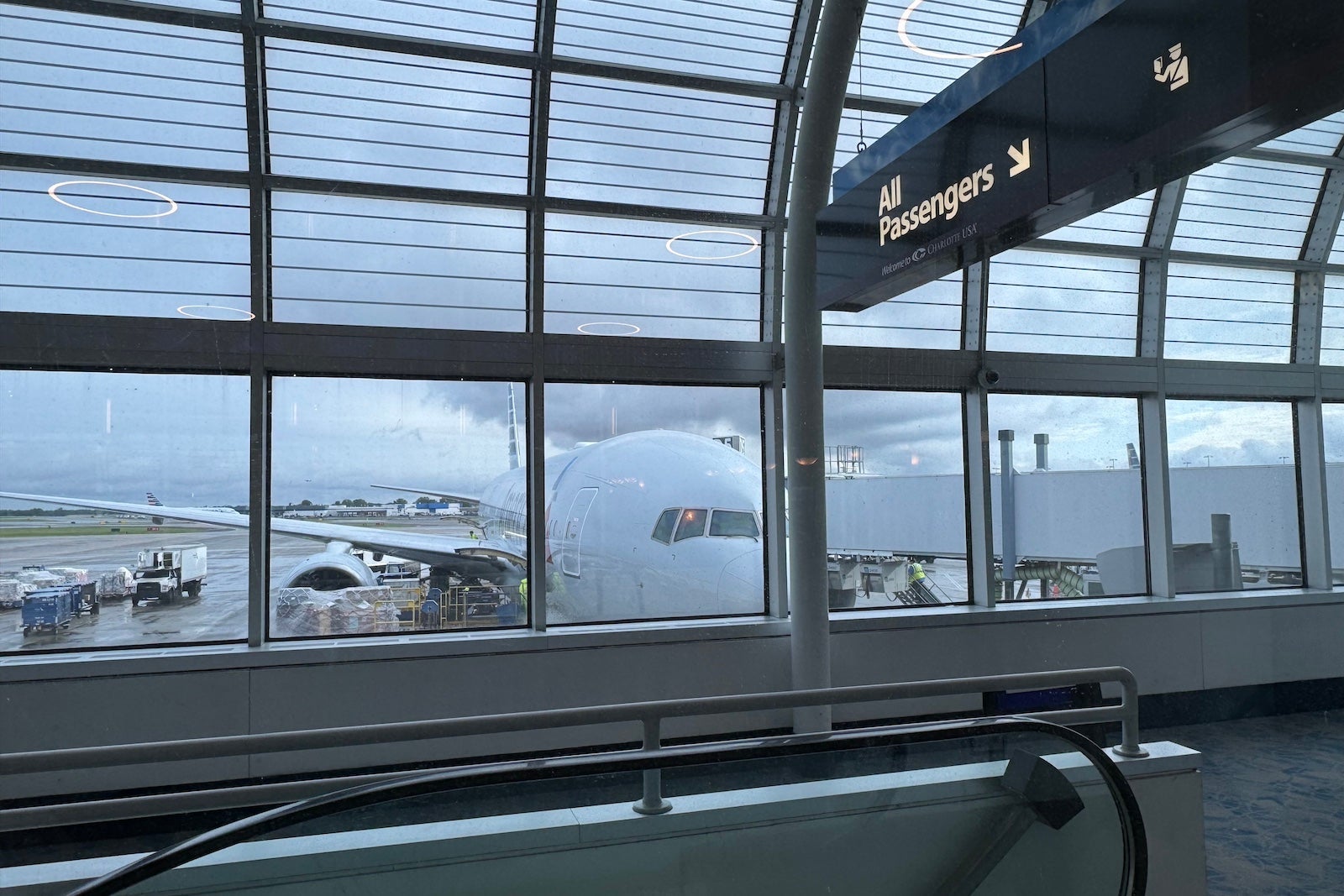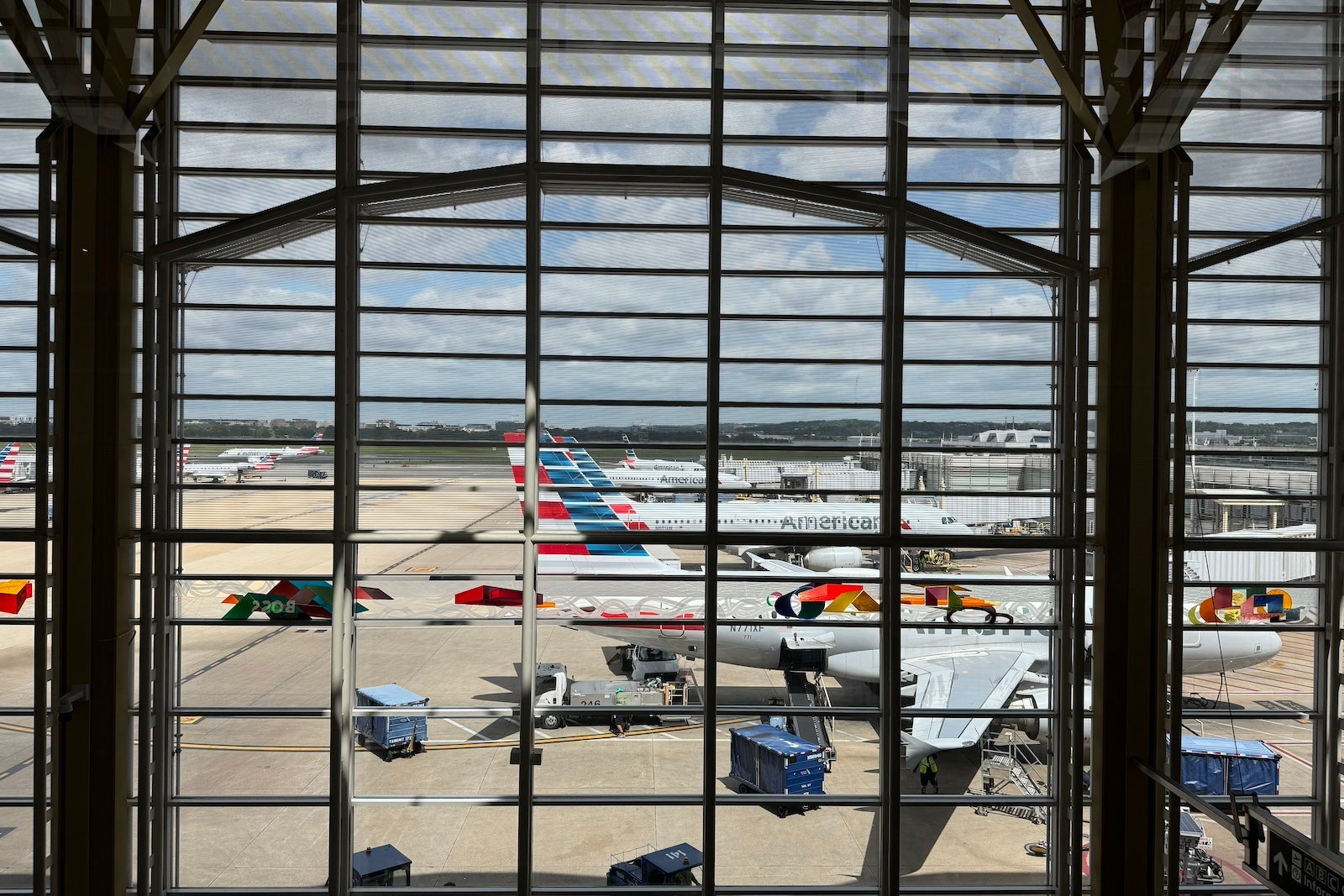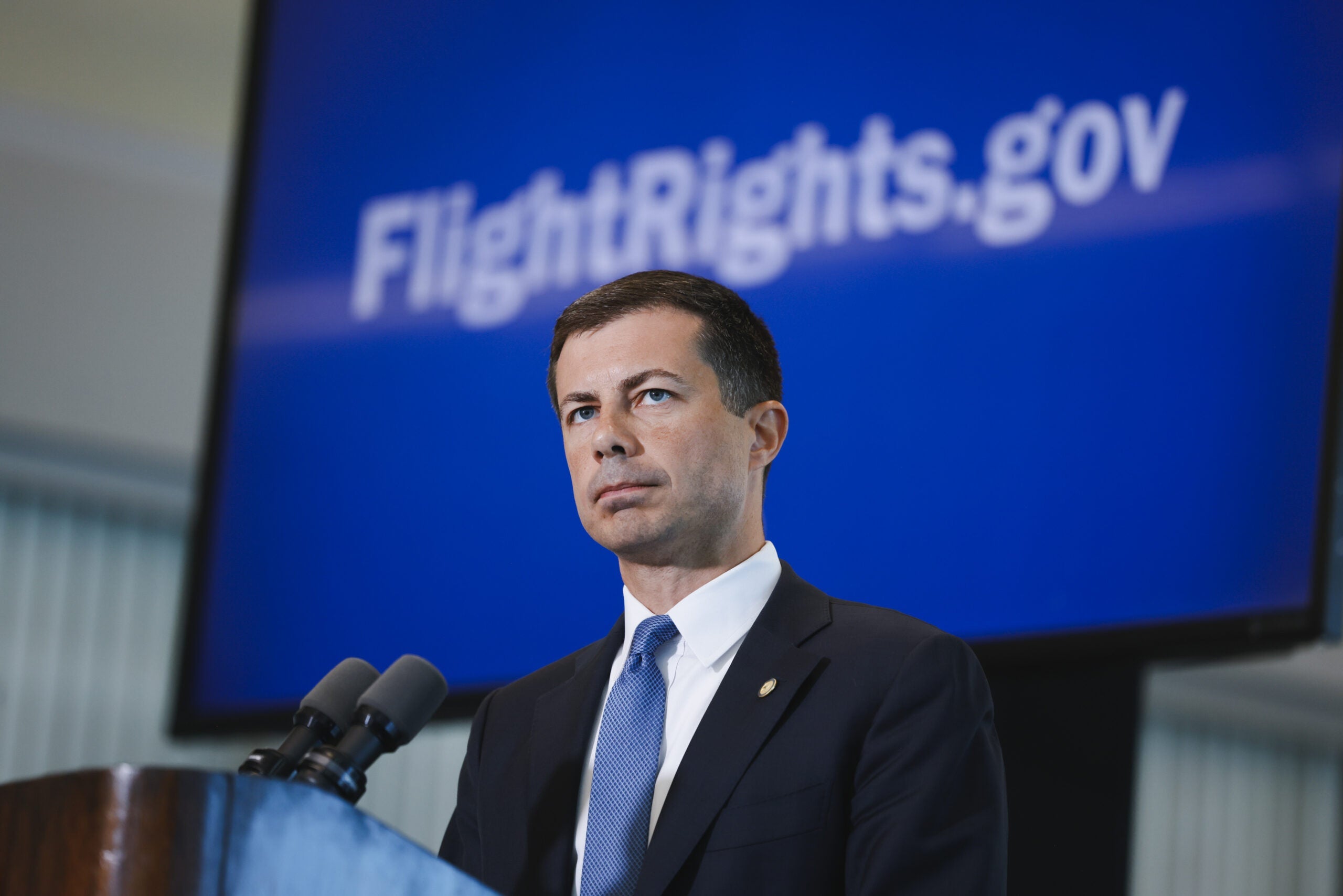Biden administration launches probe into 'state of competition in air travel'
The Biden administration is launching a wide-ranging probe into the state of air travel in the U.S.
The U.S. Department of Justice's Antitrust Division and the U.S. Department of Transportation on Thursday jointly announced a "broad public inquiry into the state of competition" in the industry.
As part of that inquiry, the federal government is seeking a swath of information, ranging from the effects of past airline mergers to airport access and airlines' tactics when it comes to ticket pricing — along with rewards programs.

"With this inquiry, we hope to learn more from the businesses and travelers at the center of this essential industry," Assistant Attorney General Jonathan Kanter said in a statement announcing the news.
"Our goal with this inquiry is to identify and remove barriers to competition so that more Americans can access the opportunities that come with good, affordable air service," Transportation Secretary Pete Buttigieg added.
A trade group for the largest U.S. airlines slammed the inquiry as politically motivated, coming 12 days before the presidential election— and argued the industry "has never been more competitive," pointing to DOT data suggesting airfare today, adjusted for inflation, is at historic lows.
"We look forward to sharing with government their own data that shows just how competitive the industry is," a spokesperson for the organization Airlines for America said in a statement to TPG Thursday.

Heightened airline industry scrutiny
The Biden administration has taken a harder line on competition and consumer protections in the airline industry.
The DOJ successfully blocked American Airlines' Northeast Alliance with JetBlue, and did the same with JetBlue's proposed merger with Spirit Airlines. More recently, the Biden administration greenlit Alaska Airlines' acquisition of Hawaiian Airlines, but extracted key concessions from the carrier on consumer protections in the process.

Under Buttigieg, the DOT has also publicly pressured airlines to improve customer service guarantees for passengers affected by flight delays and cancellations, and passed or proposed more stringent rules surrounding accessibility of air travel and passenger rights.

This month, stricter passenger refund rules rolled out by the DOT, later codified in the Federal Aviation Administration Reauthorization Act, take effect.
Recent months have also seen federal agencies and congressional leaders step up scrutiny of airline frequent flyer programs.
Bottom line
As part of this latest inquiry into airline industry competition, the public will have 60 days to weigh in on a range of factors, from pricing and rewards practices to airport access and "exclusionary conduct" in the aviation industry.
That public comment period is set to wrap up Dec. 23. With a new presidential administration set to take office less than a month later, on Jan. 20, it's unclear what might become of that inquiry.
Before this year's Alaska-Hawaiian merger, it had been close to a decade since the last big airline merger in the U.S., but the decade before that saw a wave of mergers that reduced the number of large U.S. airlines to just four big carriers that today control nearly 80% of the U.S. market.
Related reading:
- When is the best time to book flights for the cheapest airfare?
- The best airline credit cards
- What exactly are airline miles, anyway?
- 6 real-life strategies you can use when your flight is canceled or delayed
- Maximize your airfare: The best credit cards for booking flights
- The best credit cards to reach elite status
- What are points and miles worth? TPG's monthly valuations
TPG featured card
at Capital One's secure site
Terms & restrictions apply. See rates & fees.
| 5X miles | Earn 5X miles on hotels, vacation rentals and rental cars booked through Capital One Travel |
| 2X miles | Earn unlimited 2X miles on every purchase, every day |
Pros
- Stellar welcome offer of 75,000 miles after spending $4,000 on purchases in the first three months from account opening. Plus, a $250 Capital One Travel credit to use in your first cardholder year upon account opening.
- You'll earn 2 miles per dollar on every purchase, which means you won't have to worry about memorizing bonus categories
- Rewards are versatile and can be redeemed for a statement credit or transferred to Capital One’s transfer partners
Cons
- Highest bonus-earning categories only on travel booked via Capital One Travel
- LIMITED-TIME OFFER: Enjoy $250 to use on Capital One Travel in your first cardholder year, plus earn 75,000 bonus miles once you spend $4,000 on purchases within the first 3 months from account opening - that’s equal to $1,000 in travel
- Earn unlimited 2X miles on every purchase, every day
- Earn 5X miles on hotels, vacation rentals and rental cars booked through Capital One Travel
- Miles won't expire for the life of the account and there's no limit to how many you can earn
- Receive up to a $120 credit for Global Entry or TSA PreCheck®
- Use your miles to get reimbursed for any travel purchase—or redeem by booking a trip through Capital One Travel
- Enjoy a $50 experience credit and other premium benefits with every hotel and vacation rental booked from the Lifestyle Collection
- Transfer your miles to your choice of 15+ travel loyalty programs
- Top rated mobile app


